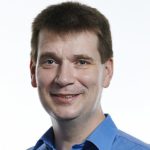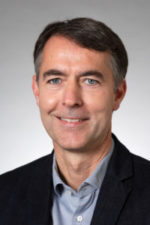Thursday 29th October 2020
IT technology is increasingly seen as a tool to reduce energy demand. Smart devices, automated buildings or self-driving cars have the potential to reduce energy demand substantially. However, many studies on the potential impact of these technologies miss important points. First, these technologies are likely to alter behavior. This could result in classical rebound effects but could also have more wide ranging implications that can lead to ambiguous total effects on energy consumption. Second, new technologies are typically first adopted by a specific subgroup of households. A timely broad diffusion is often difficult to attain and can show outcomes that differ substantially from those of early adopters. Finally, the framing conditions under which new technologies are introduced matter: Depending on how energy markets evolve, the same technologies might prove to be highly valuable or almost obsolete. In this presentation, I will use examples from 7 years of research in SCCER CREST to highlight these points and to provide some conclusions as to what conditions are required so that new technological opportunities result in desirable outcomes.
 Prof. Dr. Frank Krysiak’s research interests include the long-term impacts of environmental politics and economic theories of sustainability. In the field of environmental policy, Frank Krysiak focuses on the effects environmental policy has on technological progress and its development and implementation during economic uncertainty. Areas of application include climate policy and energy policy. Regarding question of sustainability, he concentrates on determining how sustainability is achieved, even with uncertain variables (e.g. Living conditions and future innovations), and the relationship between sustainability and efficiency.
Prof. Dr. Frank Krysiak’s research interests include the long-term impacts of environmental politics and economic theories of sustainability. In the field of environmental policy, Frank Krysiak focuses on the effects environmental policy has on technological progress and its development and implementation during economic uncertainty. Areas of application include climate policy and energy policy. Regarding question of sustainability, he concentrates on determining how sustainability is achieved, even with uncertain variables (e.g. Living conditions and future innovations), and the relationship between sustainability and efficiency.
Privacy-Preserving Smart Meter Data Analytics – Friday 30th October 2020
Smart metering solutions have gained much acceptance in many countries as a way to automate billing, provide better understanding of electricity usage, and to support more advanced energy analytics services. Member States of the European Union have committed to rolling out close to 200 million smart electricity meters. Data from smart meters support prosumers offering electricity to the grid from local generation and assists consumers in decoding their energy usage. Advanced energy analytics services provide prediction and forecasting, load monitoring, and outlier/fraud detection based on smart meter data offered from centralized data repositories. However, this development has raised serious privacy concerns and has created an urgent need for innovative privacy-preserving technologies to protect the interests of the data owners.
Homomorphic encryption is a promising technology to offer data confidentiality that can be used to preserve privacy when data storage and computation are outsourced to untrusted third parties such as commercial cloud providers and even energy utilities. Another promising technology is blockchain as this has the potential of creating trust in networks of untrusted peers.
The talk introduces smart meter data analytics and describes how homomorphic encryption can be used to offer confidentiality in a privacy-preserving manner. Furthermore, the talk addresses permissioned blockchain technology and explains how access to data can be controlled by the data owner without the need of a trusted centralized entity. The talk concludes by proposing a future privacy-preserving smart meter data framework to support advanced energy analytics services.
 Rune Hylsberg Jacobsen is an associate professor at the Department of Engineering, Aarhus University. He has a master’s degree in science in physics and chemistry and has a PhD degree in laser physics and optoelectronics from Aarhus University, Denmark. Rune’s primary research interests include computer networking, wireless communications, network security, and data analytics. His professional career spans more than 14 years in the telecommunications and IT industry, where he has been responsible for the management of research and development. He has published more than 80 peer-reviewed journal and conference papers in areas of communications, security and smart energy.
Rune Hylsberg Jacobsen is an associate professor at the Department of Engineering, Aarhus University. He has a master’s degree in science in physics and chemistry and has a PhD degree in laser physics and optoelectronics from Aarhus University, Denmark. Rune’s primary research interests include computer networking, wireless communications, network security, and data analytics. His professional career spans more than 14 years in the telecommunications and IT industry, where he has been responsible for the management of research and development. He has published more than 80 peer-reviewed journal and conference papers in areas of communications, security and smart energy.
